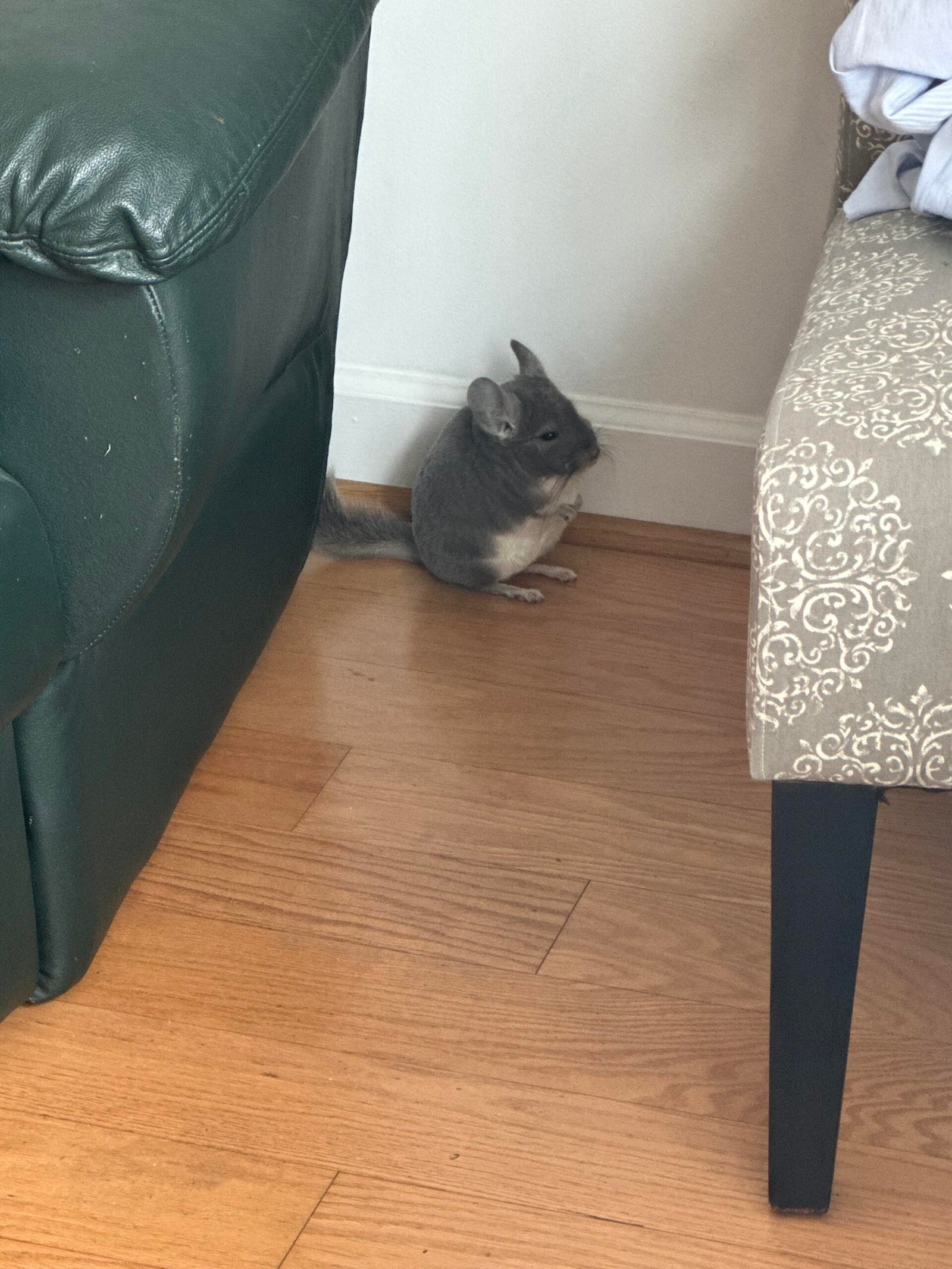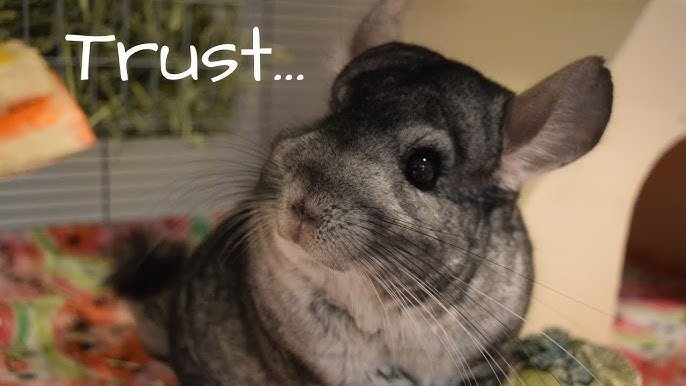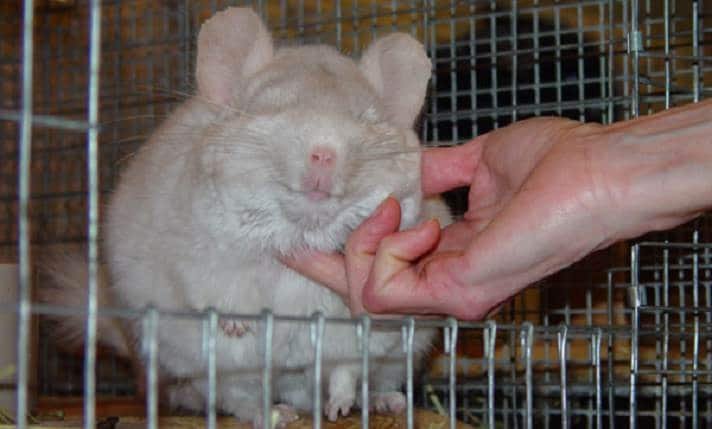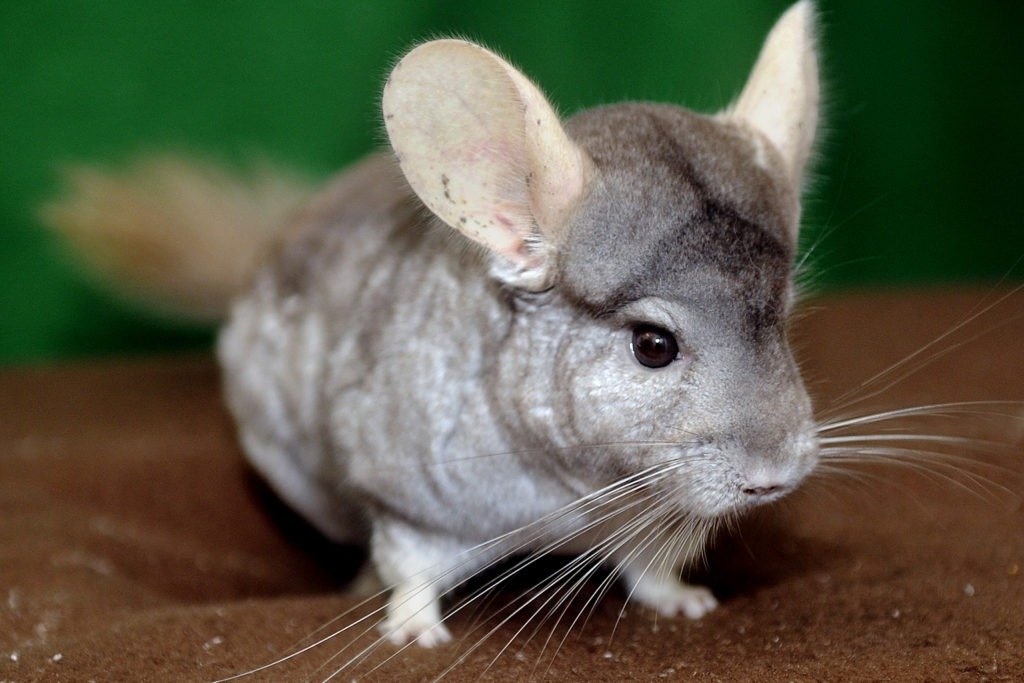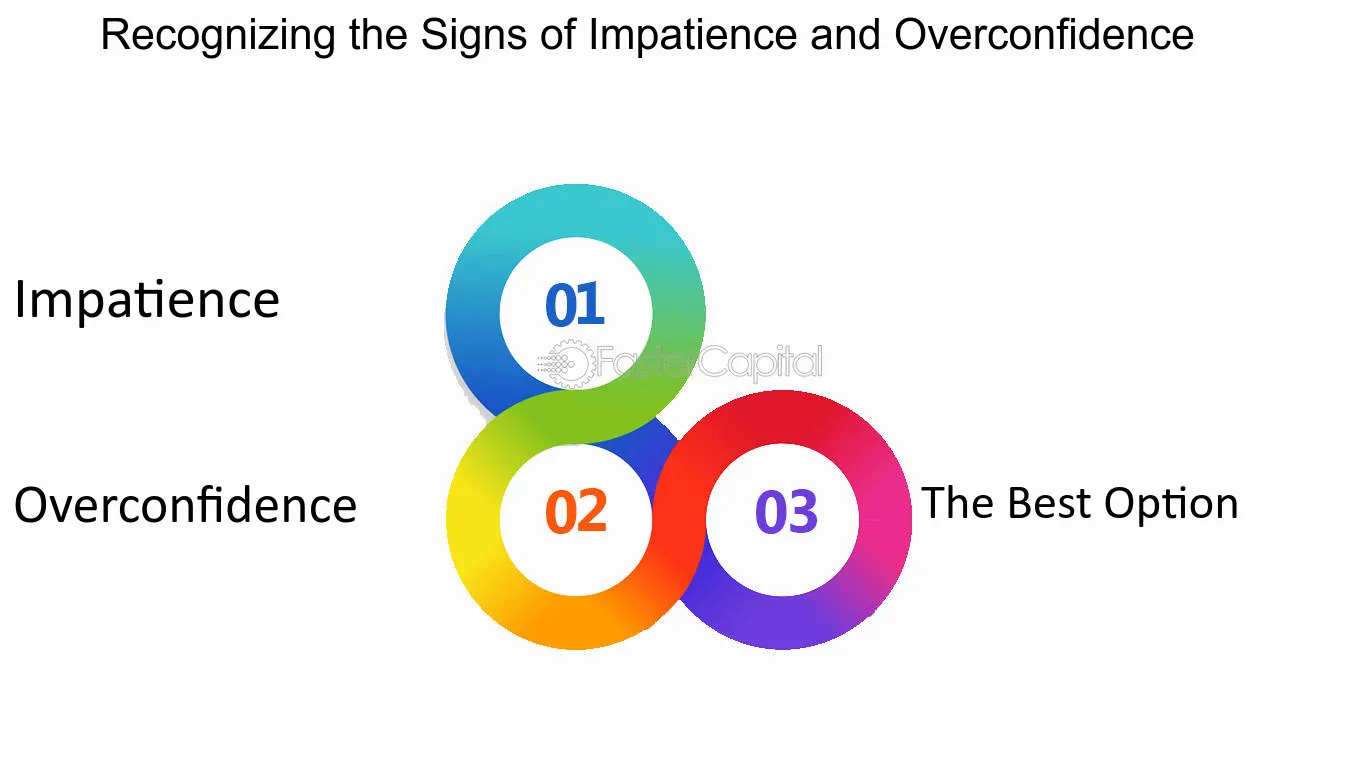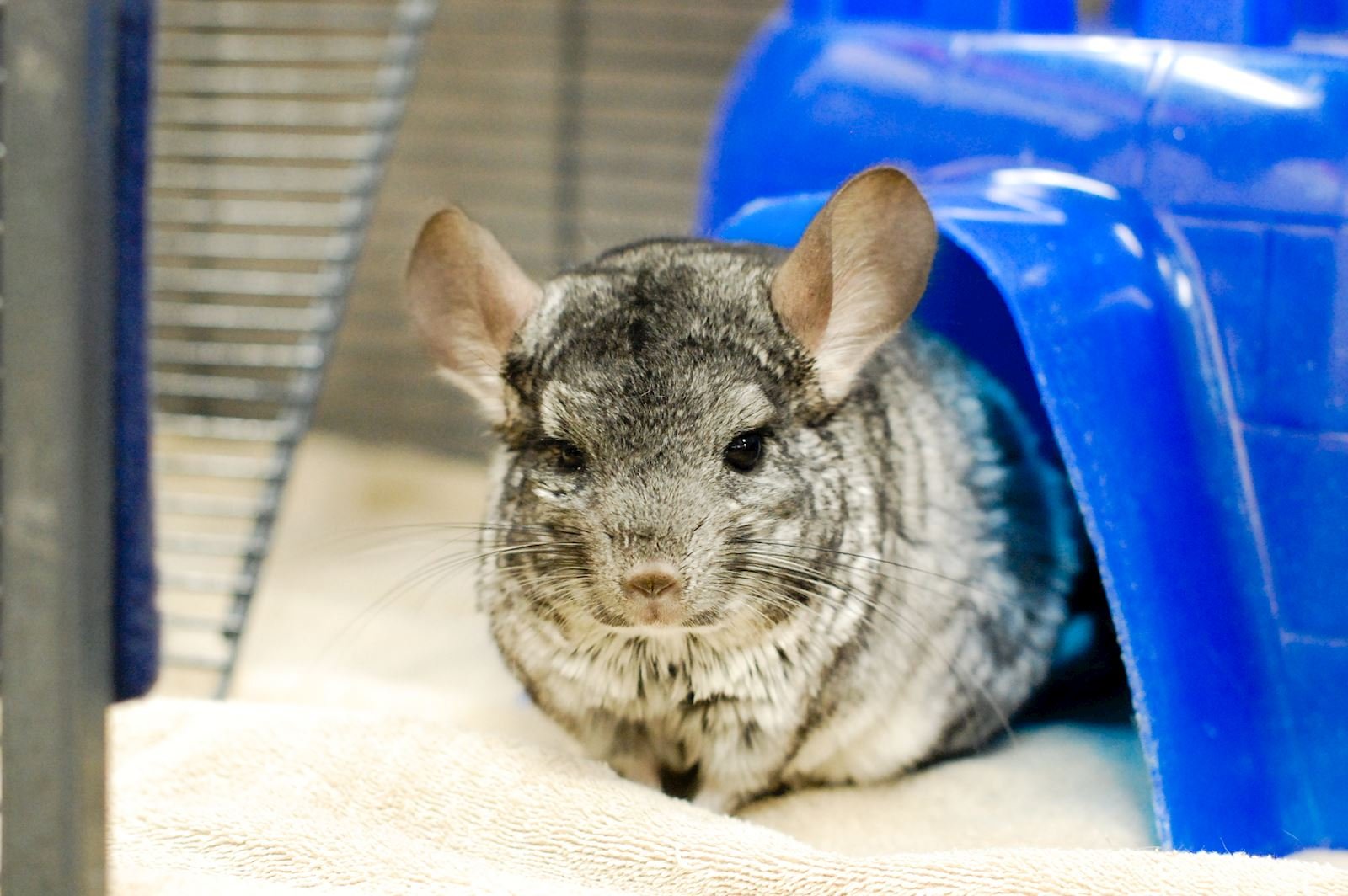
Are you thinking about getting a chinchilla or already have one as a pet? One question you might be asking is, “How long does it take to tame a chinchilla?”
Understanding this can help you build a strong bond with your furry friend and enjoy a happy, trusting relationship. Taming a chinchilla isn’t just about time—it’s about patience, trust, and knowing the right steps to take. Keep reading to discover what to expect, how to speed up the process, and tips to make your chinchilla feel safe and loved.
Your new pet is counting on you, and the wait will be worth every moment.

Credit: www.reddit.com
Chinchilla Behavior Basics
Chinchillas have unique behaviors that affect how they adjust to humans. Understanding their habits helps with taming. These small animals need time and patience to feel safe and trust people.
Learning about their natural temperament and common myths clears up confusion. It also helps owners know what to expect from their new pets.
Natural Temperament
Chinchillas are shy and cautious by nature. They are more active at night than during the day. This means they may hide or stay still if they feel scared.
They enjoy quiet spaces and gentle handling. Loud noises or sudden moves can stress them out. Chinchillas form bonds slowly but become very affectionate over time.
Common Myths
Some believe chinchillas are wild and cannot be tamed. This is not true. With patience, they can learn to trust and enjoy human company.
Others think chinchillas do not need much care. In reality, they require special attention to their diet, housing, and social needs. Proper care helps them stay calm and happy.
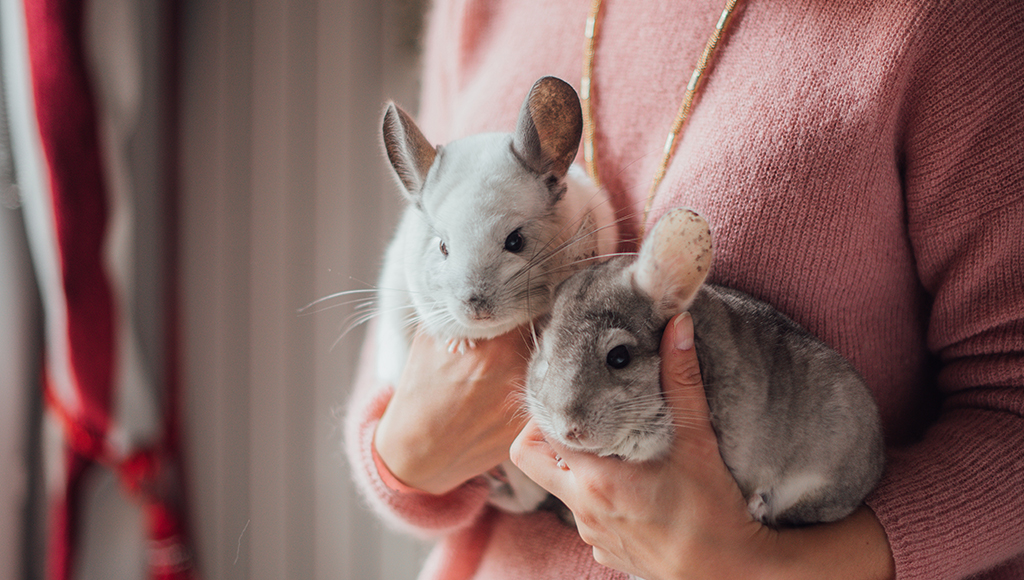
Credit: www.petassure.com
Factors Affecting Taming Time
Taming a chinchilla takes different times for different pets. Many things change how fast they trust you. Knowing these factors helps you plan and stay patient. Every chinchilla is unique. Understanding what affects taming speed makes the process easier.
Age Of The Chinchilla
Young chinchillas often tame faster. They get used to new things quickly. Older chinchillas might take longer to trust humans. They remember past experiences well. Patience is key with older pets. Age affects how fast they learn to feel safe.
Previous Handling Experience
Chinchillas handled gently before tame faster. They know humans are not a threat. Those with little or bad experience need more time. Gentle, calm handling helps build trust. Repeated positive contact improves taming speed. Past experiences shape their comfort around people.
Environment Setup
A calm environment helps chinchillas relax. Loud noises and bright lights can scare them. A quiet, safe space encourages trust. Proper cage size and hiding spots matter. Clean surroundings reduce stress and fear. A good environment supports faster taming progress.
Step-by-step Taming Process
Taming a chinchilla takes patience and care. The process has clear steps to help your pet feel safe and happy. Follow these steps daily for best results. Each step builds on the last to create trust and comfort.
Building Trust
Start by letting your chinchilla get used to your presence. Sit quietly near its cage without making sudden moves. Speak softly and calmly. This shows you are not a threat. Over several days, your chinchilla will begin to relax around you. Avoid reaching inside the cage too soon. Let your pet explore and observe you first.
Daily Interaction Techniques
Spend time near your chinchilla every day. Offer your hand slowly for it to sniff. Let your chinchilla come to you, not the other way around. Use gentle strokes on its back or head if it allows. Keep sessions short at first, about five to ten minutes. Gradually increase time as your chinchilla grows comfortable. Always watch for signs of stress or fear.
Using Treats Effectively
Choose healthy treats your chinchilla enjoys, like small pieces of dried fruit. Offer treats by hand to encourage approach. Use treats to reward calm behavior and curiosity. Avoid giving too many treats at once. This helps your chinchilla learn that good things come from you. Treats help speed up the taming process but must be used wisely.

Credit: www.wikihow.pet
Signs Of Progress
Taming a chinchilla takes time and patience. Watching for signs of progress helps you see your pet’s comfort level. These signs show your chinchilla is becoming more trusting and relaxed around you. Understanding these signals makes taming easier and more rewarding.
Recognizing Comfort
A calm chinchilla stays still or moves gently near you. It may sit quietly or groom itself without fear. The chinchilla might approach you to sniff or explore your hand. Soft, relaxed eyes and calm breathing also show comfort. Avoid sudden moves that scare your pet. Comfort means your chinchilla feels safe and trusts you more each day.
Behavioral Changes To Watch
Notice if your chinchilla stops hiding during your visits. It may start coming out to play or explore its cage. Your pet might accept gentle petting or sit on your lap. Listen for soft sounds like chirps or quiet squeaks. These show happiness and curiosity. Changes in eating habits or more active playtimes also signal progress. These small steps mean your chinchilla is learning to trust you.
Common Challenges And Solutions
Taming a chinchilla can bring joy but also some challenges. These small creatures have unique personalities and habits. Understanding common issues helps build trust faster. Patience and gentle care are key. Here are common challenges and ways to solve them.
Dealing With Shyness
Chinchillas may hide or avoid contact at first. They feel safe in quiet, calm spaces. Speak softly and move slowly around them. Offer treats by hand to gain trust. Let them come to you on their own time. Daily short sessions help them get used to your presence. Avoid sudden noises and fast movements. This reduces stress and encourages them to explore.
Handling Biting Or Scratching
Biting or scratching can happen if chinchillas feel scared or threatened. Never punish them. This makes fear worse. Instead, watch their body language for signs of stress. If they tense up or raise fur, give them space. Use treats to reward calm behavior. Handle them gently and support their body well. Regular, gentle handling helps reduce biting over time. Always stay calm and patient during interactions.
Expert Tips For Faster Taming
Taming a chinchilla can take time. Using smart methods speeds up the process. Experts share tips to help you bond faster. These tips build trust and make your chinchilla feel safe.
Focus on clear steps and gentle care. This helps your pet relax and enjoy your company. Follow these expert tips for better results.
Consistency In Routine
Chinchillas like regular schedules. Feed and play with them at the same times. This predictability makes them feel secure. A steady routine lowers stress and builds trust. Try to keep daily activities in the same order. Your chinchilla learns what to expect each day.
Patience And Positive Reinforcement
Patience is key with chinchillas. They need time to get used to you. Use treats and soft words to reward good behavior. This shows them that you are kind. Avoid sudden moves or loud noises. Let your pet come closer at its own pace. Celebrate small steps to create a strong bond.
Frequently Asked Questions
How Long Does It Take To Tame A Chinchilla?
Taming a chinchilla typically takes 2 to 4 weeks with daily, gentle handling. Patience and consistency are key to building trust.
What Factors Affect Chinchilla Taming Time?
Age, temperament, and prior handling experience influence taming speed. Younger chinchillas often adapt quicker than older ones.
How Often Should I Handle My Chinchilla For Taming?
Daily handling sessions of 10 to 15 minutes help build trust. Regular interaction is essential for faster taming.
Can Chinchillas Be Tamed If They Are Older?
Yes, older chinchillas can be tamed but may require more patience and gradual socialization.
Conclusion
Taming a chinchilla takes time and patience. Each chinchilla is different and learns at its own pace. Daily gentle care helps build trust between you and your pet. Small, calm steps work best to make your chinchilla comfortable. Remember, patience brings a happy and friendly chinchilla.
Enjoy the journey of getting to know your new friend. Keep your chinchilla safe, happy, and loved every day.

